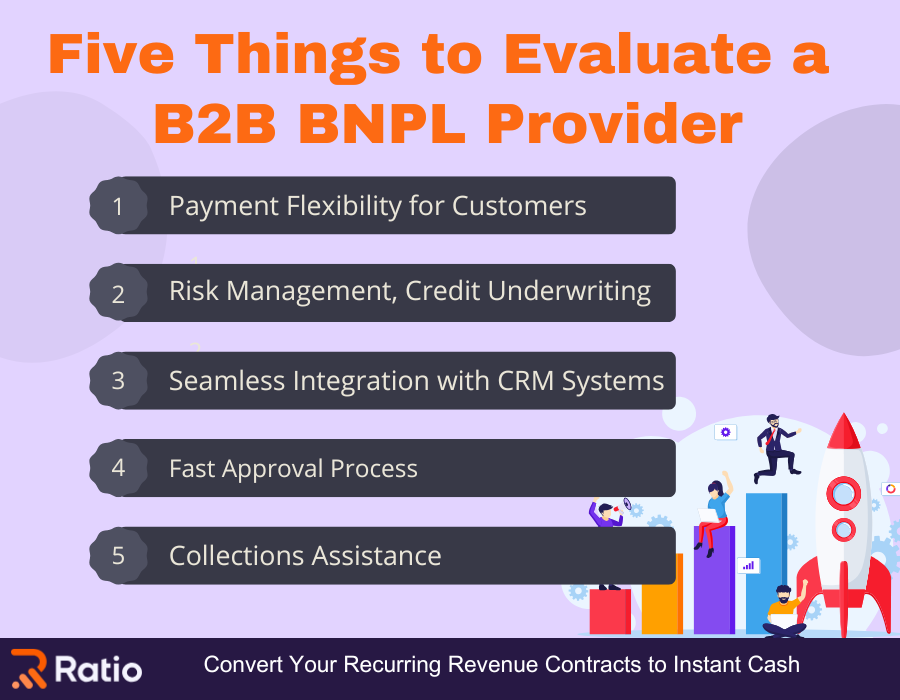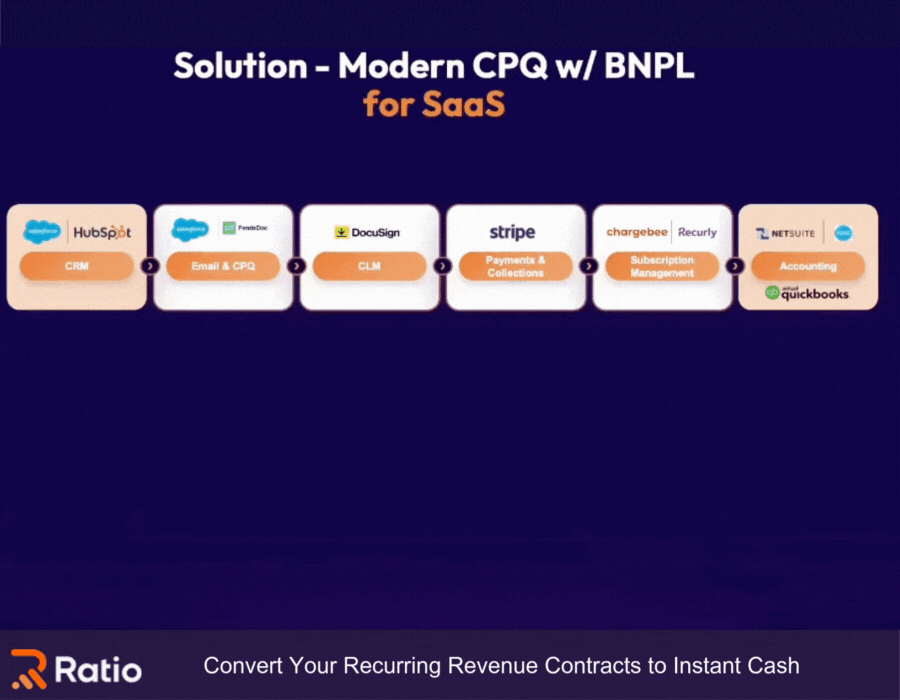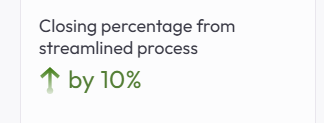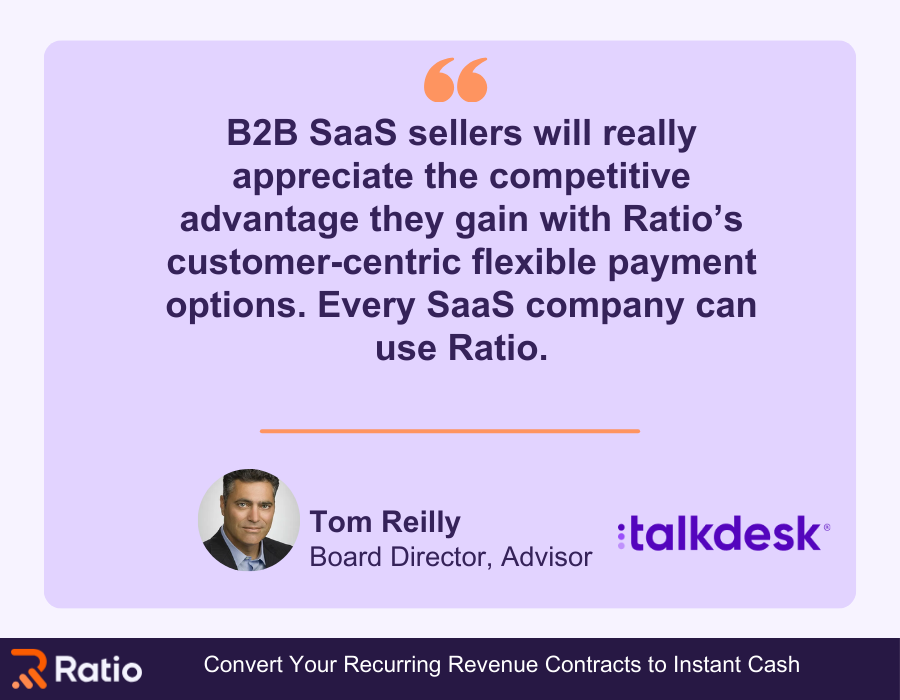Top Five Things to Evaluate When Choosing a B2B BNPL Provider
Not all B2B BNPL providers are created equal.
Some can take too long to approve a BNPL request. Others have AI-powered underwriting to give instant approvals.
Some have clunky technology that slows down your sales. Others are so seamless they make B2B BNPL feel like B2C.
Some can’t scale with your business as you grow. Others have deep pockets to support you every step of the way.
Some do the bare minimum. Others are constantly innovating to give you actionable sales insights.
Choosing the right B2B BNPL (Buy Now, Pay Later) provider isn’t easy. But we’re here to help. Here are five key factors to consider when picking a B2B BNPL partner. Let’s dive in!
Five Things to Consider When Choosing a B2B BNPL Provider
Choosing the right B2B BNPL provider can help your business close stalled deals and convert even budget-conscious customers. This is exactly what Nohtal Partansky, CEO of Sorting Robotics, experienced and shared: "By providing flexibility to our customers, we have landed deals that we would have lost to customer budget constraints."

Checking the level of flexibility a solution offers is undoubtedly the most important criterion—but it’s not the only one. To ensure you’re making the best choice, you should also look for a few 'must-have' features that address critical needs, along with some 'great-to-have' options that can enhance your overall experience. These include:
- Payment Flexibility for Customers (must-have)
- Risk Management and Credit Underwriting (must-have)
- Seamless Integration with CRM Systems (must-have)
- Fast Approval Process (great-to-have)
- Collections Assistance (great-to-have)
Let’s take a closer look at each.
If this interests you, you’ll want to discover the 5 key benefits of offering B2B Buy Now, Pay Later to enterprise clients.
1. Customizable Payment Flexibility for Customers
Misaligned payment terms often lead to hesitation or lost opportunities. While flexible payment solutions via B2B BNPL providers can address this, not all offer the adaptability buyers need.
Why is this crucial? Buyers’ payment preferences vary—monthly, quarterly, or custom schedules tied to project-based income. If your B2B BNPL provider's options are too inflexible, deals may still falter.
Consider a $150,000 annual SaaS contract. If your B2B BNPL provider only supports monthly payments of $12,500, but the buyer’s cash flow aligns better with quarterly installments of $37,500, you could lose the deal.
Providers like Ratio stand out in this area because they enable sellers to offer tailored payment plans—monthly, quarterly, bi-yearly or even custom—based on what works best for their buyers. This flexibility not only helps close deals but also reduces the need for heavy discounting to secure upfront payments, protecting your profit margins.
As Joe Brown, CEO of DearDoc, shares in this DearDoc case study: “Ratio Boost is more than just a BNPL solution; it’s transformed our entire sales process. We’re closing deals faster, increasing our average deal size, and giving our customers the flexibility they need to commit confidently.”
To see how tailored payment flexibility can increase your sales efficiency, try the Ratio Cash Flow Simulator today.
2. Risk Management and Credit Underwriting
While a B2B BNPL solution can offer much-needed payment flexibility, it also introduces the risk of defaults if not managed properly. Buyers may miss payments, abandon their payment plans, or refuse to pay after receiving your product or service—disrupting cash flow and threatening your company’s financial stability.
Effective credit underwriting is critical to mitigating these risks. A strong B2B BNPL provider should combine robust methodologies with technology to assess buyer creditworthiness upfront and reduce exposure to defaults.
For example, Ratio uses AI-powered underwriting that leverages key business information, such as name and address, to perform precise, targeted evaluations of a buyer’s financial viability. This ensures that only buyers with sufficient creditworthiness are approved for flexible payment plans, providing sellers with confidence and protection against potential losses.
Moreover, Ratio is introducing Ratio Copilot, an AI-driven assistant that analyzes historical data and customer demographics. Copilot shall offer sales intelligence like optimum pricing, probability of conversion, and more.
3. Seamless Integration with CRM and Other Systems
For many businesses, the biggest hurdle in adopting B2B BNPL solutions is integrating the new system into their existing tech stack. In fact, 15% of respondents in a Gartner Peer Community survey cited tech integration as their primary challenge with B2B BNPL adoption.
If your BNPL solution doesn’t integrate smoothly with essential systems like your CRM, accounting software, or invoicing platform, it can create operational inefficiencies and delay the sales cycle. However, embedded B2B BNPL solutions like [Ratio Boost](https://www.ratiotech.com/boost) simplify this process by offering native integrations with popular platforms, such as:
- CRMs like Salesforce and HubSpot,
- Accounting platforms like FreshBooks and QuickBooks,
- Banking platforms like Plaid and
- Payment processors like Stripe and GoCardless.

These integrations ensure that payment workflows, invoicing, and collections are automated within a single platform, eliminating unnecessary complexities and delays.
Consider how, with Ratio Boost, DearDoc replaced multiple tools by consolidating proposal creation, agreement management, and payment collection into one B2B BNPL platform.
Now, sales reps at DearDoc can share a single payment link, allowing customers to enter payment details and sign agreements instantly. The impact? A notable 10% increase in closed deals.

4. Fast Approval Process
In B2B sales, 28% of prospects abandon deals due to lengthy decision-making. While multi-decision-maker sales cycles contribute to delays, the real issue arises when clients face payment flexibility approval delays after deciding to proceed.
Outdated or slow underwriting processes exacerbate this, extending sales cycles and increasing the risk of lost deals.
A fast, automated approval process is essential to reduce these delays and keep deals on track. Choosing a B2B BNPL provider with near-instant, automated approvals not only reduces friction in the sales cycle but also builds client trust with timely responses and increases the likelihood of closing deals.
As Ratio’s CEO Ashish Srimal emphasizes, “Opt for a provider with rapid—within minutes—underwriting capabilities to accelerate deal closures.”
Providers like Ratio now deliver approval decisions within minutes, helping businesses accelerate deal closures and maintain consistent cash flow.
5. Collections Assistance
Managing collections is one of the toughest aspects of offering B2B BNPL, especially with large invoices and extended payment terms. Even with strong underwriting, payment delays or defaults can still occur, creating costly distractions from growth.
A reliable B2B BNPL provider removes this headache by handling collections directly. When the provider offers the full contract value upfront, your cash flow remains steady, and the provider assumes responsibility for payment follow-ups and default management. This frees your team to focus on growth rather than chasing payments or managing collections.
Whether through automated reminders, escalation processes, or dedicated collections support, a provider like Ratio helps mitigate bad debt risks—allowing you to confidently focus on expanding your business.
No doubt, each of these factors—from payment flexibility to collections support—is crucial in choosing a B2B BNPL provider that drives real growth. Solutions like Ratio Boost are designed to excel on all these fronts. Let’s take a look at why Ratio Boost is a top choice for B2B companies.
Also check out our guide to choosing a subscription-based financing partner!
Why Ratio is the Right Choice for Your B2B BNPL Needs
Choosing the right B2B BNPL provider isn’t just about adding payment flexibility—it’s a strategic decision to boost cash flow, reduce financial risk, and drive sustainable growth. Ratio Boost is built to deliver on all these fronts, going beyond traditional B2B BNPL solutions to support your business goals from end to end.
If you are still on the fence, check what our clients have to say about the benefits they get by using Ratio Boost for B2B BNPL.

Backed by a $411 million capital pool, Ratio also ensures fast access to funds and scales effortlessly to meet high-volume needs.
Ratio Boost isn’t just a financing option—it’s your partner in closing deals faster and driving sustainable growth. Ready to see how Ratio can drive your growth? Get started today with our easy-to-use app!


.png)






.png)


